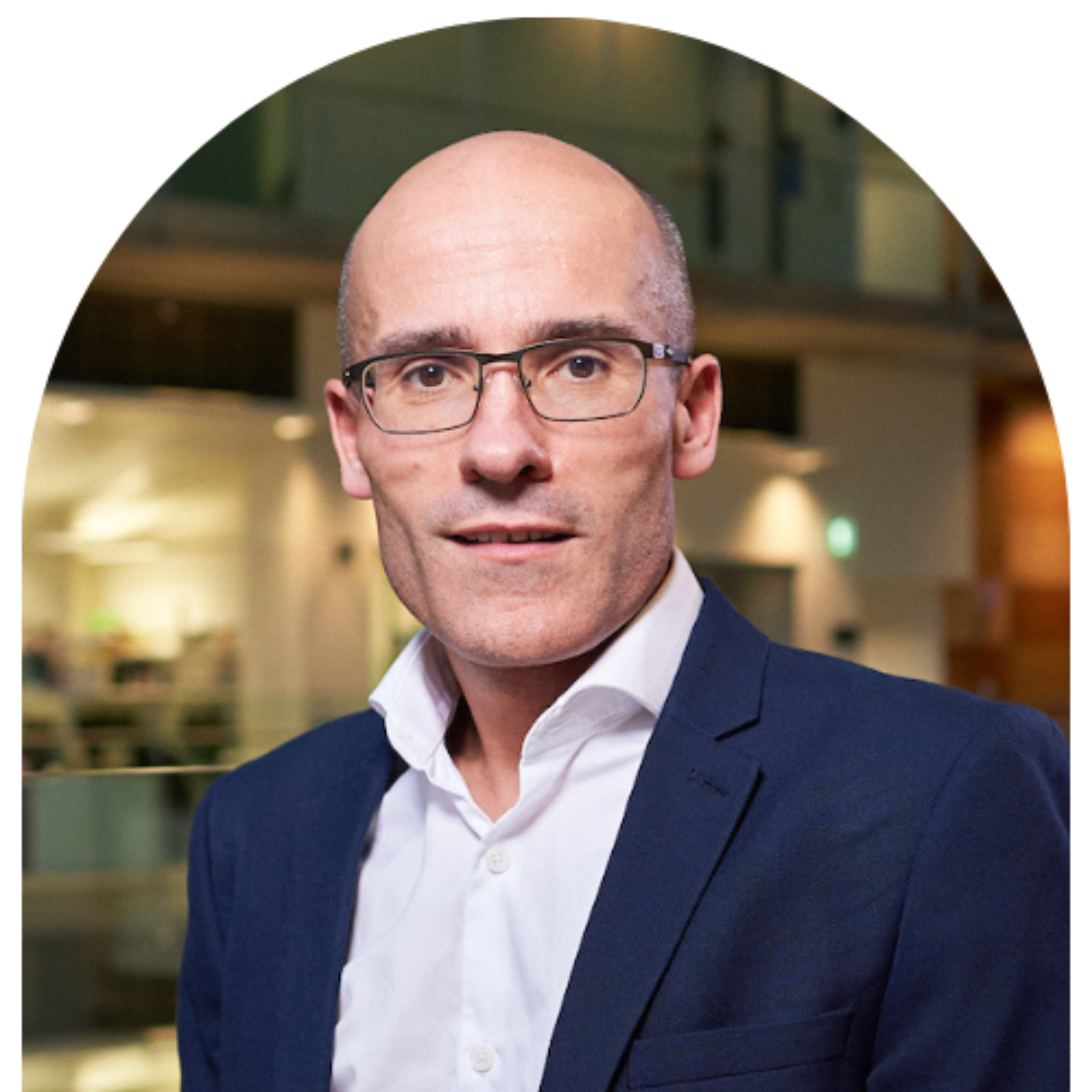
SPEAKERS
Ngā mihi to our conference speakers

Dr James Kinross
James Kinross is an Associate Professor of Surgery at Imperial College London, and he is head of colorectal surgery at Imperial NHS trust. He is also a visiting Professor at the Royal College of Surgeons of Ireland. With over 15 years of clinical and research experience, he is a leading expert on the gut microbiome’s role in colorectal cancer, investigating its impact on disease progression, early detection, and personalized treatment strategies.
Beyond his contributions to academia and surgery, Dr Kinross is a prominent science communicator, engaging with the public through media appearances, public lectures, and bestselling writing. His book on the microbiome and human health, “Dark Matter”, has reached a wide audience, making complex scientific discoveries accessible and sparking public interest in the role of gut bacteria in disease. He frequently contributes to discussions on health, innovation, and the future of medicine, appearing in documentaries, podcasts, and major news outlets to advocate for evidence-based, patient-centered approaches to healthcare.
In addition to his extensive publication record, Dr Kinross is actively involved in clinical trials aimed at refining precision surgery techniques and microbiome-driven interventions. He is funded by CRUK, NIHR and the EPSRC and currently supervises 7 PhD students. He sits on the BSG microbiome expert panel and has sat on the AGA nutrition and obesity council. His ability to bridge the worlds of cutting-edge research, surgical practice, and public engagement makes him a highly influential voice in colorectal cancer research and make him an invaluable contributor to NZSO2025.

Prof Charles Swanton
Professor Charles Swanton MB BS PhD FRS FMedSci FAACR FRCP is a world-leading clinician scientist renowned for pioneering research into cancer evolution, metastasis, and drug resistance. His work on clonal evolution, spatial and temporal heterogeneity in renal cell carcinoma published in the NEJM is known to everyone in the field of cancer. Professor Swanton is a once-in-a-generation talent, and his attendance at NZSO 2025 will be an opportunity for researchers and clinicians alike not to be missed.
He is Chief Investigator of the groundbreaking CRUK TRACERx and TRACERx EVO studies, transforming understanding of lung cancer evolution and minimal residual disease detection through ctDNA tracking—now in routine clinical practice. As co-director of the CRUK Lung Cancer Centre of Excellence and Cancer Research UK’s Chief Clinician, his work has unveiled fundamental mechanisms of tumour heterogeneity, genome instability, and resistance to therapy, and more recently highlighted a causative link between air pollution and lung cancer. A Fellow of the Royal Society and Academy of Medical Sciences, his international accolades include the ESMO Award for Translational Cancer Research, the Paul Marks Prize, and the prestigious Jeantet-Collen Prize for Translational Medicine. Professor Swanton’s multidisciplinary team has reshaped cancer research, driving ground-breaking advances in personalised medicine.
Charlie is a truly world-class clinician scientist, a brilliant communicator, and it is NZSO’s great pleasure to host him on his first visit to New Zealand.

Dr Ashani Weeraratna
Dr. Weeraratna is the Bloomberg Distinguished Professor of Cancer Biology, E.V. McCollum Chair of Biochemistry and Molecular Biology at the Johns Hopkins Bloomberg School of Public Health, as well as Associate Director of Laboratory Research at the Sidney Kimmel Cancer Center, Johns Hopkins School of Medicine. She is the former President of the Society for Melanoma Research, an international society, , and was recently appointed by President Biden as a member of the National Cancer Advisory Board. Prior to joining Johns Hopkins, she was the Ira Brind Professor and Co-Program Leader, Immunology, Microenvironment & Metastasis Program Member at the Wistar Institute. Born in Sri Lanka and raised in Lesotho in Africa, Weeraratna first came to the United States in 1988 to study biology at St. Mary’s College of Maryland. She earned a Ph.D. in Molecular and Cellular Oncology at the Department of Pharmacology of George Washington University Medical Center. From 1998 to 2000, she was a post-doctoral fellow at The Sidney Kimmel Comprehensive Cancer Center at Johns Hopkins Oncology Center, before joining the National Human Genome Research Institute as a staff scientist. In 2003, she moved to the National Institute on Aging, where she started her own research program, before joining the Wistar Institute from 2011-2019.
Dr. Weeraratna is an expert in melanoma metastasis, Wnt signaling, and aging, and her research focuses heavily on the effects of the tumor microenvironment on metastasis and therapy resistance. She is one of the first to study how the aging microenvironment guides metastasis and therapy resistance in melanoma. For this innovative work, she was selected by Nature to be a part of their “Milestones in Cancer Research” video series and in 2021 the NCI selected her as one of their “Top 5 Cancer Researchers Accelerating Cancer Research Into the Future”. Moreover, the quality and impact of Dr. Weeraratna’s research is further recognized by the award of numerous peer-reviewed grants and awards.
Finally, Dr. Weeraratna has been a champion of increasing diversity for many years, and this is evident in her writings which call for gender and racial equity (e.g., Nature, Nature Medicine, Nature Reviews in Cancer, Cancer Cell and Cancer Discovery). She mentors junior faculty all over the world, and is spearheading efforts to increase the diversity among the Hopkins faculty. In her own department she has successfully implemented strategies to increase diversity both through faculty recruitment, and in her student body. She has written a book for the lay public called “Is Cancer Inevitable?” meant to highlight the progress made in the field, and the importance of diversity in cancer research. She is also heavily invested in Public Health, with multiple calls for sun protection and awareness through her social media presence, and community outreach.
